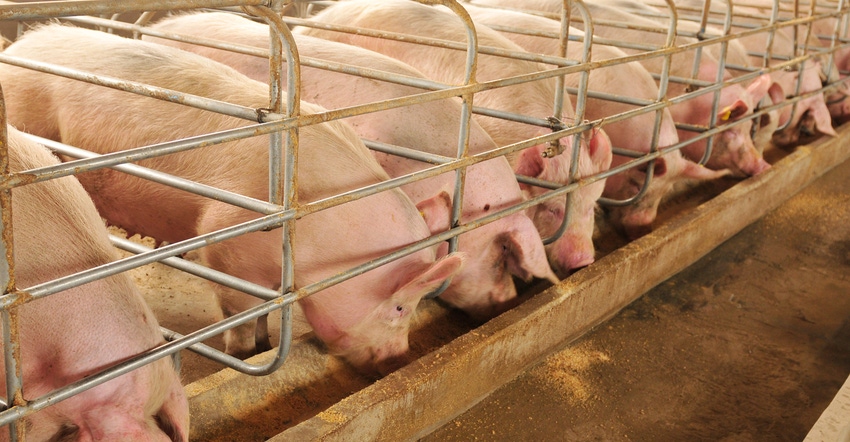
In the next 18 months, Cactus Family Farms, the pork production division of Cactus Feeders, plans to add 7,500 sows to its production system. With this expansion, Cactus hopes to add 40 new wean-to-finish barns in Nebraska and Iowa by fall 2021, either by new construction or with existing facilities.
"Nebraska is a real area of opportunity, both for Cactus and independent producers," says Rod Leman, director of business development at Cactus. "The interest from Nebraska has been primarily due to the tough farming conditions related to grain prices. We're targeting the eastern third of Nebraska and the western third of Iowa, with the goal of placing barns in proximity to our new investment in the Wholestone Farms packing plant in Fremont, Neb."
As a contract production model, Cactus Family Farms owns the pigs, while the producer owns the barn and cares for the pigs. Each barn will house 2,450 pigs.
Leman explains the project works in two separate phases. First is choosing a site, getting the necessary local and state permits, and building the barn itself. Then comes the production phase, which, for those who have never raised pigs before, includes training on caring for young pigs and getting them off to a good start. Leman says Cactus will provide support through the entire process, including farm visits from support staff. Staff also will assist growers with marketing.
Cactus also is interested in discussing contract opportunities with growers who have an existing wean-to-finish facility, or feeder-to-finish operation they are willing to convert. The facilities must be viable total confinements, full slat and no more than 60-head pen buildings. For those producers with existing facilities, Leman notes the age and condition, configuration of the pens, equipment and ventilation will determine the updates needed.
"With existing facilities, we typically set an appointment to visit, talk with the owner, the operator of the facilities," Leman says. "No. 1 is establishing a good relationship with the operator. No. 2 would be to evaluate the facilities per our needs, so that we feel we can get good production on our pigs. Sometimes that may require some remodeling. Sometimes not."
Contracts are offered for up to 15 years. Leman notes Cactus Family Farms is offering a financing program with a low down payment.
"We're seeing growers sign on for anywhere from 10 to 15 years," he says. "That's at the grower's discretion, whatever they would like. We do offer a $25,000 sign-on bonus for barns built in 2020. We're not going to get in the way if a producer has financing from somewhere else, but we do have many financing solutions available. We offer a low down payment financing program for as little as around $45,000 for cash and equity in land, or a combination of the two."
The 2,450-head barns typically come with a turnkey, ready-to-operate cost of about $800,000, and Leman notes there's an annual take-home cash flow of between $10,000 and $25,000 for labor payment, depending on financing.
In addition, depending on soil types and conditions and fertilizer costs, there is a net value of between $15,000 and $20,000 in manure value annually. There's typically about $20,000 to $40,000 of equity built each year.
"It's going to probably take 160 or so corn acres for this project to handle the manure," Leman says. "So if you just took the minimum, $15,000 in nutrient value, that's $93 per acre worth of value that growers don't have to spend on commercial fertilizer."
"The real payoff for this investment is when the loans are paid off," Leman adds. "That can add back to the equation. Depending on how it was financed, that barn could add somewhere in the neighborhood of $40,000 to $60,000 annually that would be positive cash flow to the operation at point. Plus, these barns have traditionally held their value over time. That's an asset that typically ends up being free and clear of debt in 12 to 15 years."
Growers interested in working with Cactus Family Farms can learn more by contacting Leman at 515-835-2312 or [email protected].
About the Author(s)
You May Also Like






